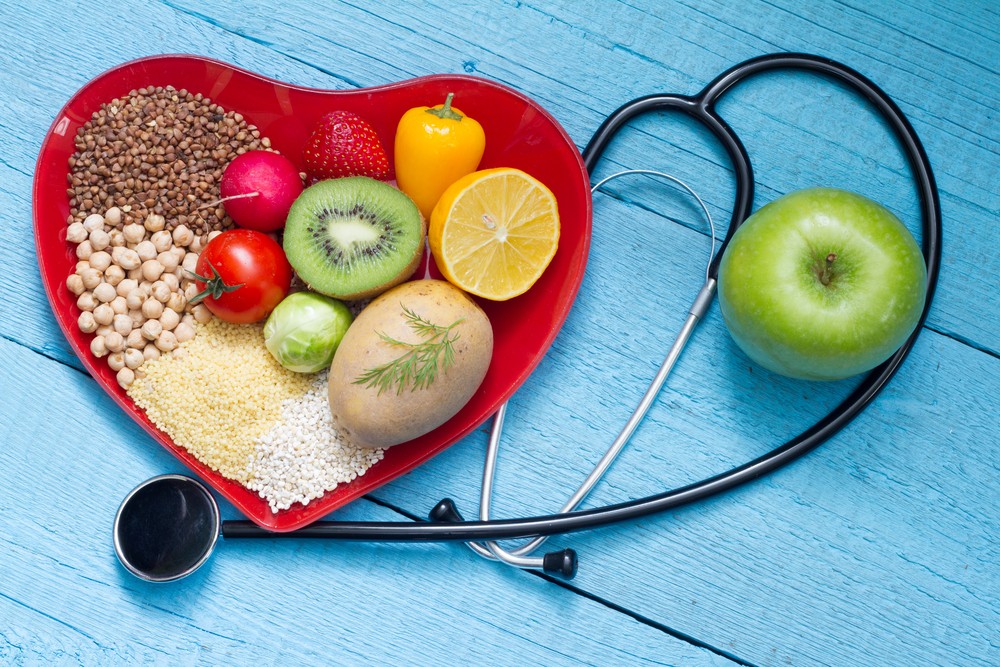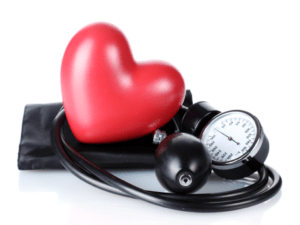February Is American Heart Month: How To Maintain A Heart-Healthy Diet

February is designated as American Heart Month, which aims to advocate about cardiovascular health and raise awareness about heart disease. Since 1963, American Heart Month has been celebrated as a way to educate Americans to join the battle against heart disease. And during this month known for hearts and Valentine’s Day, American Heart Month serves as the perfect opportunity to focus our attention on ways to promote and maintain heart health!
Heart disease is a serious problem among Americans, affecting people of all ages and from all walks of life. In fact, the Center for Disease Control and Prevention (CDC) lists heart disease is the leading cause of death in both men and women. Heart disease, also called cardiovascular disease, is a term used to describe a variety of problems with the heart. The most common issue is called atherosclerosis, which is the buildup of plaque on the walls of the arteries, inhibiting blood flow, which can eventually lead to stroke or heart attack. Damage to your heart can come from a variety of sources including congenital heart defects, high blood pressure and stress, but the most common causes are due to lifestyle choices that include smoking, lack of exercise and an unhealthy diet.
Steps Towards Preventing Heart Disease
Risk factors such as high blood pressure and high cholesterol increase your chances of having a stroke or developing heart disease. As such, controlling and preventing risk factors are vital towards preventing heart disease. Luckily, there are many ways to keep your heart in great shape, and you can make healthy changes to lower your risk of developing heart disease. Controlling and preventing risk factors is also important for people who already have heart disease. To lower your risk:
- Watch your weight
- Control your blood sugar, cholesterol and blood pressure
- Drink alcohol in moderation
- Incorporate daily exercise
- Maintain a healthy diet
While your goal in pursuing weight loss may be to simply lose weight and look better, following a weight loss plan
carefully could actually help you to improve the overall health of your heart and lengthen your life! NJdiet is here to help. We take weight loss and overall wellness to an
entirely new level. By utilizing bloodwork and performing DNA testing on each of our clients, we can determine each individual’s ideal diet and workout plan. We customize supplementation along with a personalized diet plan to help every patient attain their weight and health goals.
Heart-Healthy Foods
Making small changes to your daily life can improve your health and lower your chances of heart disease. These changes can include adding exercise to your routine, quitting smoking and improving your diet by incorporating heart-healthy foods. The American Heart Association recommends eating eight or more servings of fruits and vegetables each day to reduce the risk of heart disease. Fruits and vegetables contain fiber, vitamins, and minerals, which promote a heart-healthy diet and help control weight and blood pressure. Try to incorporate a variety of colorful fruits and vegetables into breakfast, lunch, dinner, and even dessert!
Making an effort to live a healthier lifestyle can make a big difference in the war against heart disease and there are certain foods that can make for a healthier heart that is better equipped to fight off this deadly disease. Below are some of our favorite foods that taste great and improve cardiovascular health.
Fish
Fish is lower in calories than other types of meat and can also be awesome for your heart. Fish, such as salmon and tuna, is loaded with omega-3 fatty acids, which can help to decrease the amount of plaque near the heart and arteries, thus greatly reducing the risks of heart disease. Trout, mackerel, tuna, and herring are also heart-healthy types of fish, which can be made even more heart-healthy by baking, steaming, or broiling, and using salt in moderation. Researchers have found that those who enjoy a serving of fatty fish at least twice per week experience the most heart-healthy benefits.
Red Wine
Red wine, in moderation, has long been thought of as heart healthy. The alcohol and certain substances in red wine called antioxidants may help prevent coronary artery disease, the condition that leads to heart attacks. Recent research has found that red wine contains resveratrol, which may help lower bad cholesterol and prevent blood clots when consumed in moderation.
Berries
Berries are nature’s super fruits and a wonderful alternative to sugary snacks. Blackberries, blueberries, strawberries and raspberries are full of vitamins, antioxidants, phytonutrients and soluble fiber, all of which help decrease chances of a heart attack. They can also decrease inflammation, which is crucial to one’s health and well-being. Berries many antioxidants have been shown to lower blood pressure and improve overall health in general.
Oatmeal
Oatmeal is a low-calorie alternative to other foods which is wonderful for your heart-health. Packed with soluble fiber, oatmeal can help to lower cholesterol, which is important since high cholesterol levels can lead to heart disease and heart attacks. Other whole-grain products, such as pastas or breads (consumed in moderation of course) are also beneficial. To truly get the most heart benefits from your oatmeal, avoid processed instant oatmeal or oatmeal with lots of sugar. Instead, go for whole-grain varieties that contain all natural ingredients.
Beans
Beans have incredible health benefits: they contain lots of fiber, B-vitamins, and minerals, all of which can boost your heart health. Darker colored beans, like black beans, are particularly good for you and your heart.
Dark Chocolate
Believe it or not, dark chocolate is healthy, especially where your heart is concerned. A 2012 research study found that people who consumed dark chocolate daily cut their risk of heart attacks and strokes. Eating a small serving of dark chocolate daily can reduce the risk of other heart-related problems thanks to its flavonoids, which can improve blood pressure, reduce inflammation and protect your heart.
Tomatoes
Tomatoes are good for you and for your heart. This low-calorie super food is packed with lycopene, which can assist with lowering bad cholesterol and thereby reducing your risk of heart attack and heart disease.
Nuts
Walnuts, almonds and cashews are full of “good” fats that can improve cholesterol levels when used in place of saturated fats. Nuts also help you to feel satiated but avoid salted varieties that are high in sodium, and consume them in moderation, as they are very calorie dense.
Green Tea
Green tea has been the subject of many scientific studies related to human health. Time and time again, it has shown to have countless positive health benefits, and these include benefits for the heart. The catechins and flavonoids in green tea protect the heart while also helping to calm high blood pressure and cholesterol. It can be enjoyed hot or iced; the health benefits remain the same either way.
As you can see, there are many excellent foods to eat for improved heart health. Are you getting enough of these amazing foods in your diet? Eating these foods regularly in conjunction with a generally healthy diet can greatly help to improve your heart’s health. Furthermore, all of these foods, when consumed in moderation, can still be part of a healthy, balanced weight loss plan.
Healthy Habits For Heart-Health
Get Moving
Regular physical activity is an essential aspect of a heart-healthy lifestyle. Incorporating daily moderate exercise can help improve heart health and lower blood pressure. The American Heart Association recommends that individuals perform at least 150 minutes per week of moderate exercise.
Manage Stress
While we all cope with stress in different ways, chronic stress and anxiety are risk factors for cardiovascular disease, according to the American Heart Association. There are many ways to prevent the harmful effects of stress, such as practicing deep breathing, doing yoga or stretching, petting a dog or cat, talking with a friend or going for a short walk. Doing hobbies and activities you enjoy can help relieve stress and improve your overall mood.
Get Enough Sleep
Frequent sleep deprivation and poor sleep quality can cause disruptions in your metabolism, blood pressure, and inflammation, which may lead to an increased risk of heart disease. Aim for eight hours of quality sleep each night. To improve sleep quality, try establishing a bedtime routine and avoid excess caffeine in the daytime. Sleep is beneficial for brain functionality, metabolism, immune functionality and emotional well-being.
Quit Smoking
If you’re still smoking, it’s time to quit. There are many benefits to living a smoke-free life including improved circulation, reduced risk of certain types of cancer, and feeling more energetic.
Taking small steps to prevent heart disease can go a long way in improving your overall health and wellness. Start good habits early and be sure to schedule regular doctor’s visits to watch for changes in your heart health. With increased awareness, education and lifestyle changes, we can help more Americans live longer, fuller, healthier lives and be an advocate for healthy habits.
NJdiet can help you to reach the weight-loss and diet goals you want to
tackle! Our program is not only aimed at promoting healthy weight loss, but aims to improve your total wellness — where the side effect is weight loss, but the end result is better overall health and well being.
When you come in for your consultation, we will explain how our unique individualized system works to reduce hunger and feel healthier, and how our 4 component approach makes it possible to lose 20-40 lbs. or more of fat in only 40 days! We assess the many metabolic factors to genetically make sure you not only lose the weight, but ensures you keep it off and stay healthy for a lifetime.
Attending the Initial Evaluation and Consultation is normally $99, but by registering on our website it will only cost $27! We welcome the opportunity for you to have a consultation with us, so register online now!





